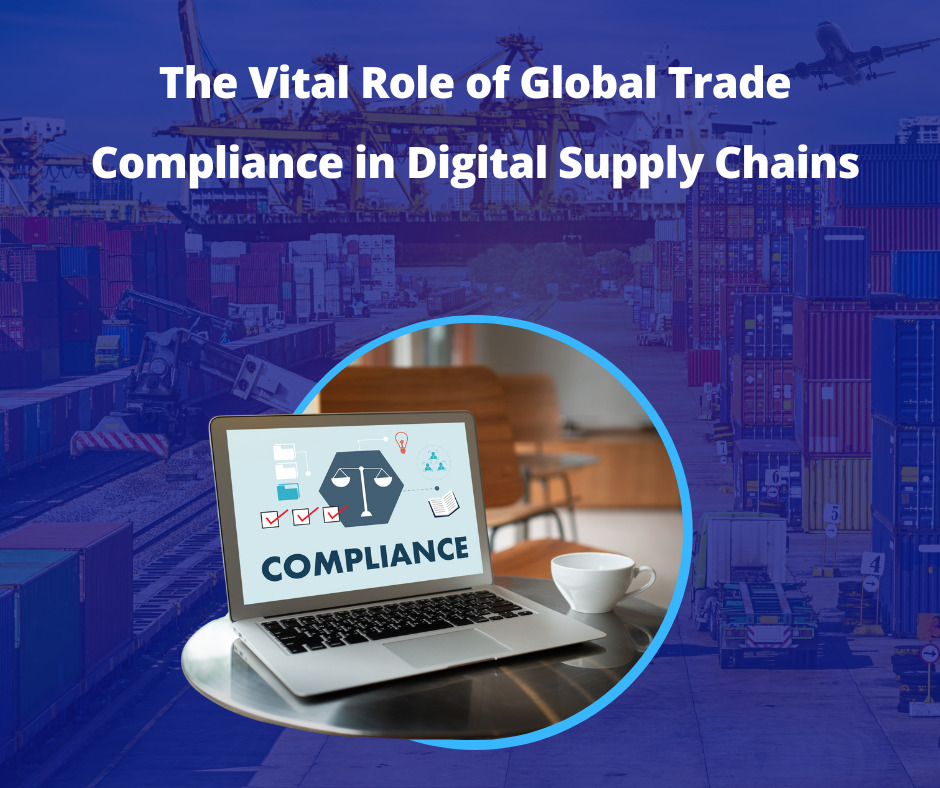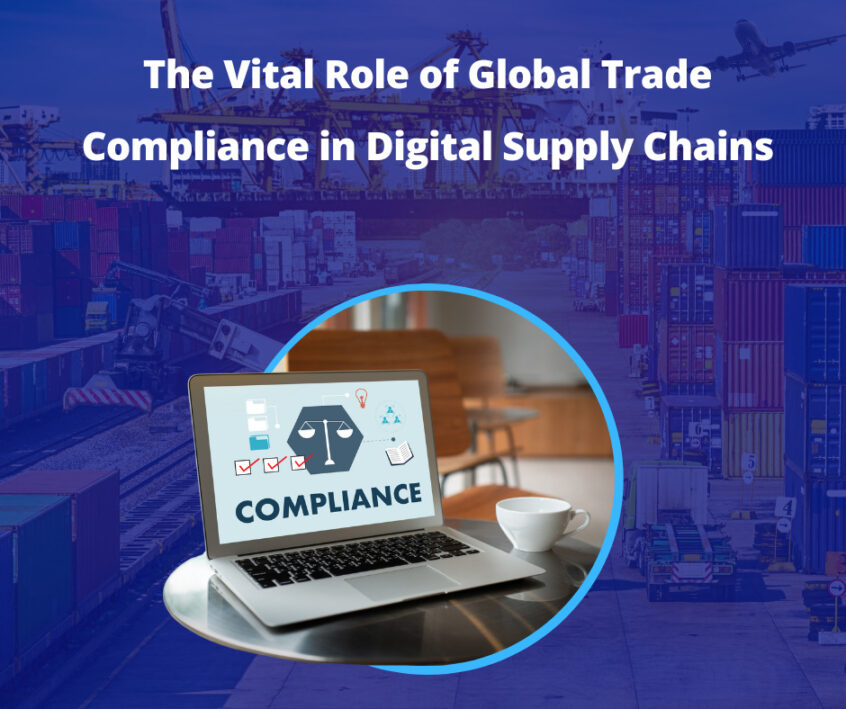
In an era marked by increasing protectionism and evolving trade enforcement regulations, global trade compliance has become crucial for importers, exporters, and the broader logistics and shipping industries. With the rise of digital supply chains, companies must recognize that global trade compliance is not just a matter of paperwork and duty payments. Instead,it should be an integral part of their strategic planning. This article explores the importance of incorporating global trade compliance systems into the digital supply chain and its implications on the logistics and shipping sectors.
In recent years, the landscape of global trade has undergone a profound transformation with the rise of protectionism casting a shadow over international commerce. The surge in protectionist measures, including tariffs, trade sanctions, and various trade barriers, has fundamentally altered the dynamics of cross-border trade. TOften driven by geopolitical tensions and economic considerations, these protectionist policies have direct and indirect ramifications for businesses engaged in global trade.
One of the most immediate impacts of this protectionism is the escalation in the cost of imported products. Tariffs and trade sanctions levied on specific goods or countries can substantially increase the financial burden on importers. This, in turn, affects consumer prices, corporate profitability, and, ultimately, the competitiveness of businesses operating in the international market.
Beyond the financial implications, the surge in protectionism poses formidable challenges to supply chain management. The intricate web of trade regulations, documentation requirements, and compliance standards has grown more complex. Navigating this complicated regulatory landscape demands a nuanced understanding of international trade laws and the implementation of advanced systems and tools.
Companies that fail to adapt to these changing trade dynamics and do not prioritize compliance with trade regulations face severe consequences. These consequences encompass increased operational costs and disrupted supply chains as goods may be subject to delays and additional inspections. Moreover, there are legal and reputational risks, as non-compliance with trade regulations can lead to fines, legal actions, and damage to a company’s standing in the global marketplace.
In this environment, having robust systems and tools to manage global trade compliance has become not just a business advantage—but a necessity. These tools empower organizations to navigate the complexities of protectionism, ensuring that they can continue to engage in international trade profitably, efficiently, and confidently.
The Missing Piece: Global Trade Compliance in Digital Supply Chains
Despite the increasing complexities in international trade, global trade compliance often remains an afterthought for many multinational companies when considering their digital supply chain strategies. This oversight can have far-reaching consequences. Organizations must proactively integrate trade compliance into their operations to achieve a truly digital supply chain, moving beyond mere documentation and duty payment.
Landed Cost Analysis: A Deceptive Metric
One common pitfall is relying solely on landed cost analysis to evaluate the cost-effectiveness of imports. Without the support of an advanced global trade compliance (GTC) system, goods imported from different countries may have significantly contrasting costs. For example, products from China might seem 25% cheaper than those from Mexico. However, when accounting for special tariffs, international freight costs, and shorter transit times from Mexico, the actual cost differential may be closer to 6%. Longer lead times associated with imports from distant countries like China can also lead to higher just-in-case inventory costs.
Strategic Sourcing and Risk Management
Global trade compliance should be integral to a company’s strategic sourcing programs. Beyond cost analysis, GTC systems play a crucial role in risk management. They help companies adhere to restricted party lists, which dictate with whom they can legally do business. Additionally, watch lists assist in evaluating potential business partners based on financial strength, ethical considerations, and other sourcing goals.
The Complex World of Trade Regulations
Adhering to trade laws is a complex process. Foreign companies conducting business in the United States face unique challenges, including avoiding importing goods from sanctioned entities. Moreover, foreign companies must comply with the U.S. Treasury’s Office of Foreign Assets Control (OFAC) 50 Percent Rule, which imposes sanctions on companies with substantial ownership by sanctioned parties. This complexity underscores the need for a comprehensive GTC system to ensure compliance and avoid customs delays.
Admissibility Flags and Documentation
Companies like QAD have introduced import “admissibility flags” in their systems to facilitate compliance. These flags signal when a product requires customs review or special documentation from government agencies like the Federal Drug Administration (FDA) or the Department of Transportation (DOT). Proper documentation is critical to prevent goods from accumulating demurrage charges in port warehouses, causing production delays and customer dissatisfaction.
Leveraging Foreign Trade Zones (FTZs)
Another strategic approach to trade compliance is creating a foreign trade zone (FTZ) strategy. FTZs offer several advantages, such as deferred duties and the ability to manufacture products within the zone, often resulting in lower tariffs. Companies can also export goods from an FTZ to other countries, further optimizing landed costs. This flexibility can be a game-changer for global supply chains.
The Impact on Logistics and Shipping
The incorporation of global trade compliance systems into digital supply chains has significant implications for the logistics and shipping industries:
1. Reduced Customs Delays: GTC systems and admissibility flags help streamline customs clearance processes, reducing delays in product shipments, thus leading to improved supply chain efficiency and customer satisfaction.
2. Optimized Transportation: Companies can make informed decisions about transportation modes and routes with better insights into landed costs. This optimization can result in cost savings and reduced environmental impact.
3. Risk Mitigation: Logistics companies can minimize the risk of being associated with sanctioned entities by adhering to trade regulations and restricted party lists. This enhances their reputation and avoids legal complications.
4. Supply Chain Agility: Leveraging FTZs and strategic trade compliance strategies allows logistics providers to offer their clients more flexible and cost-effective solutions, enhancing their competitiveness.
Wrapping up
In an era of increasing trade complexities and protectionism, global trade compliance systems are no longer optional for companies with international supply chains. They are a strategic imperative for achieving a truly digital supply chain. By integrating advanced GTC systems, companies can reduce costs, mitigate risks, and optimize their global supply chains. These developments benefit the organizations themselves and have a profound impact on the logistics and shipping industries, enabling them to operate more efficiently and effectively in the international marketplace. Companies must recognize the critical role of global trade compliance in their digital supply chain strategies and embrace it as a cornerstone of their success to remain competitive and resilient.




